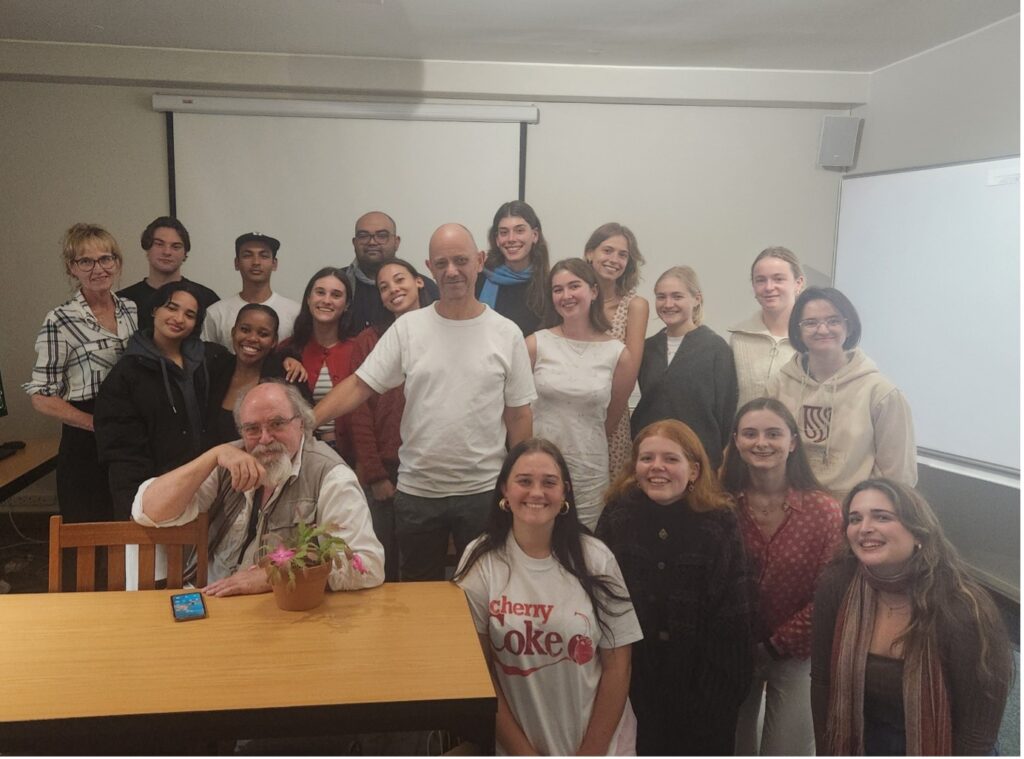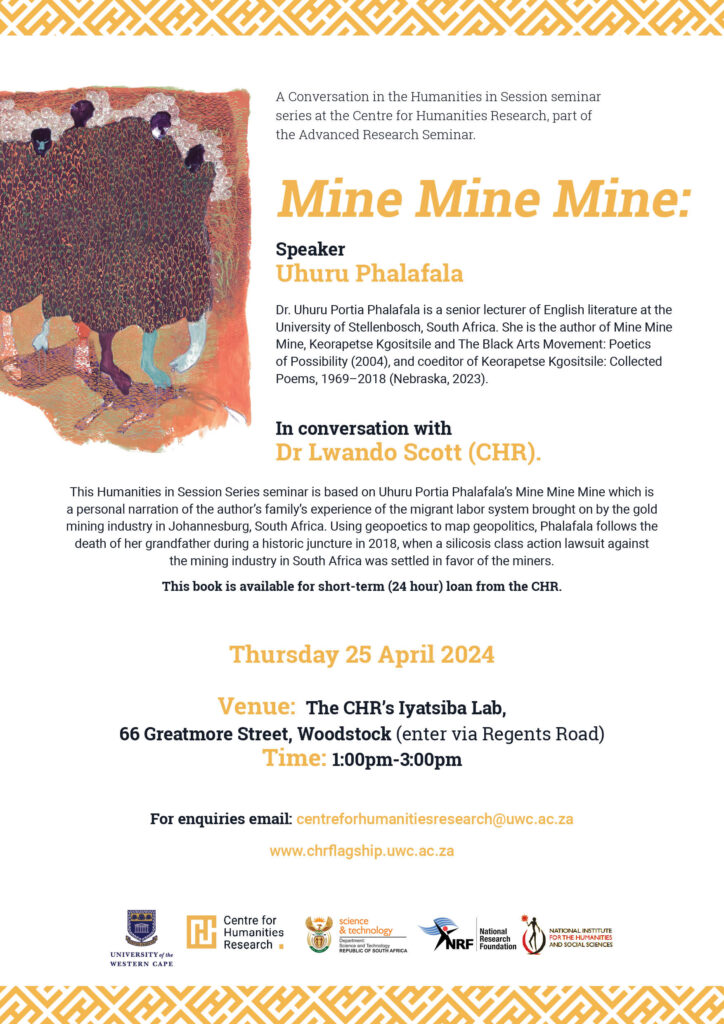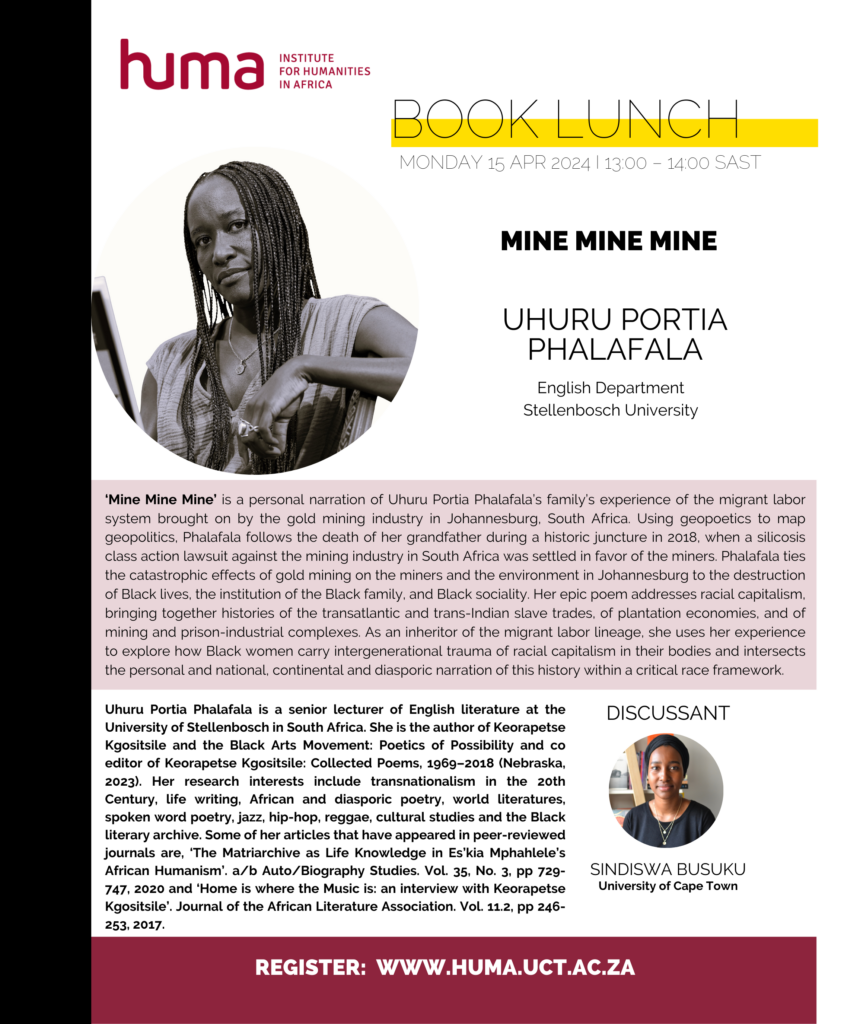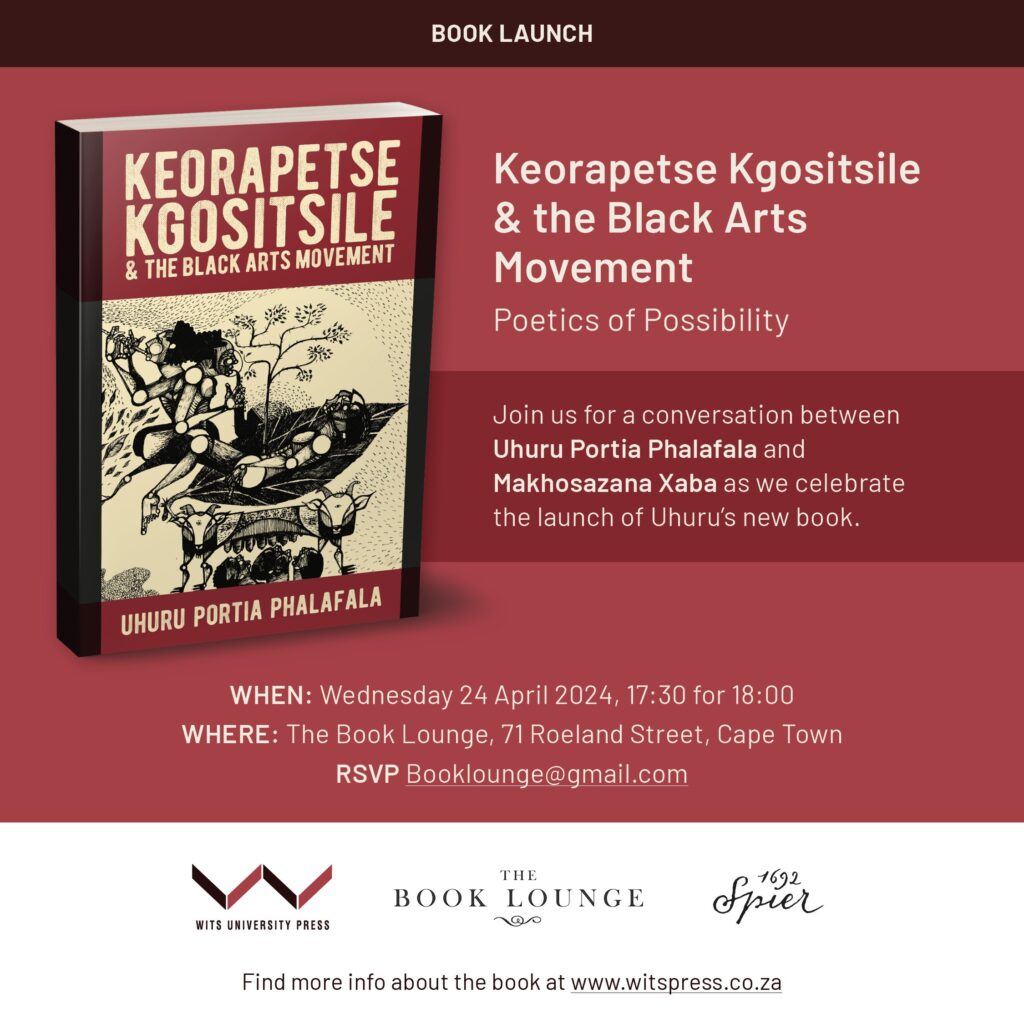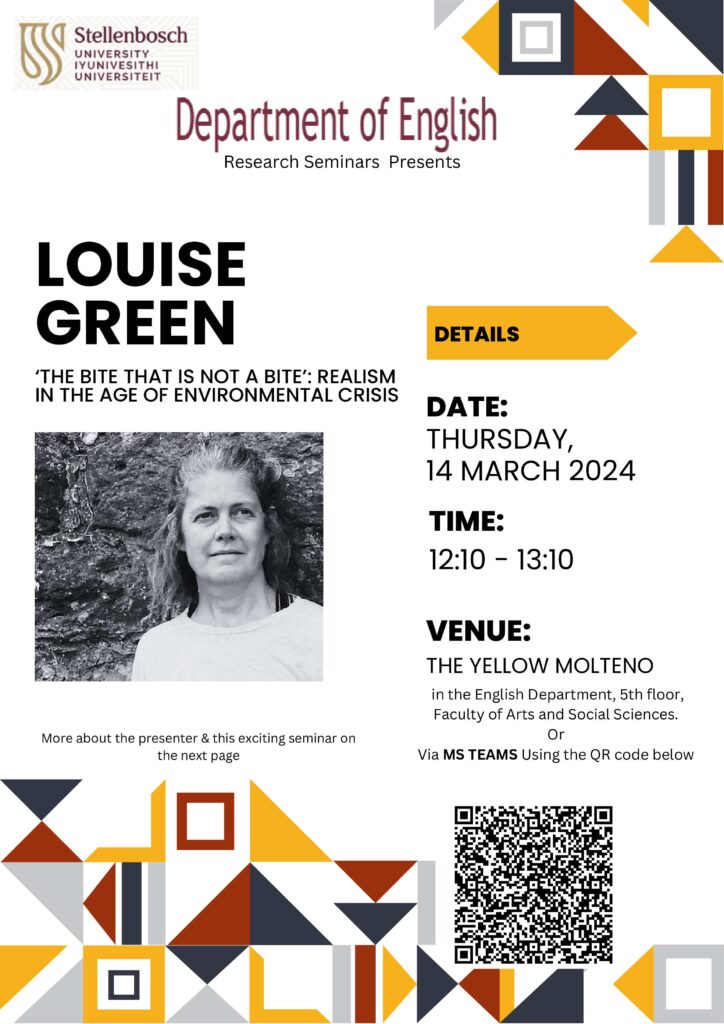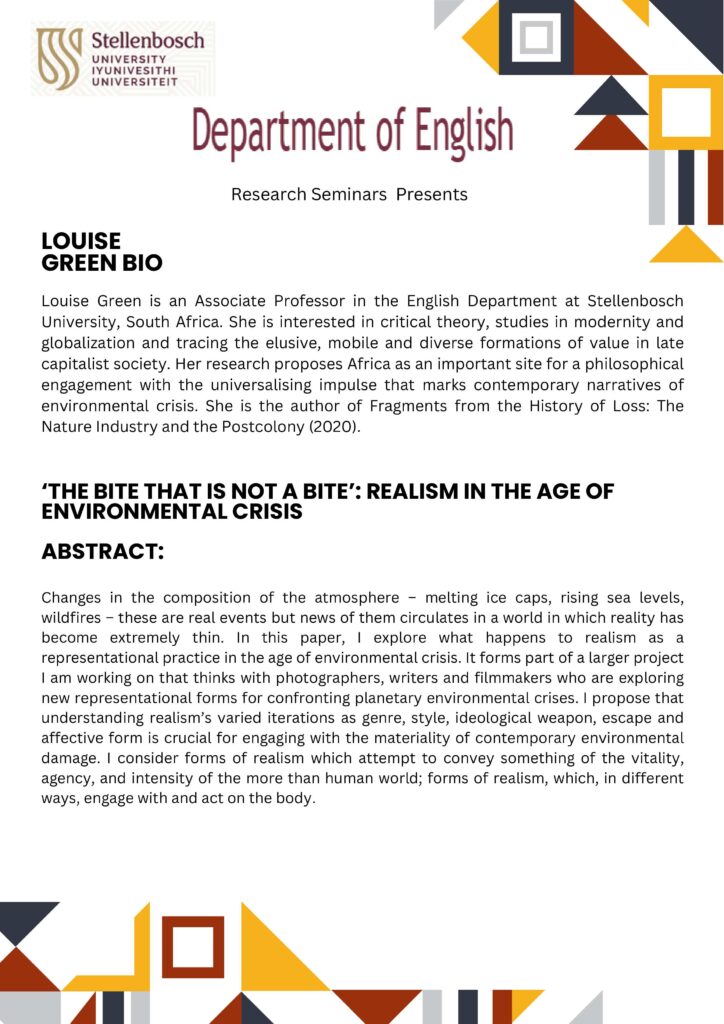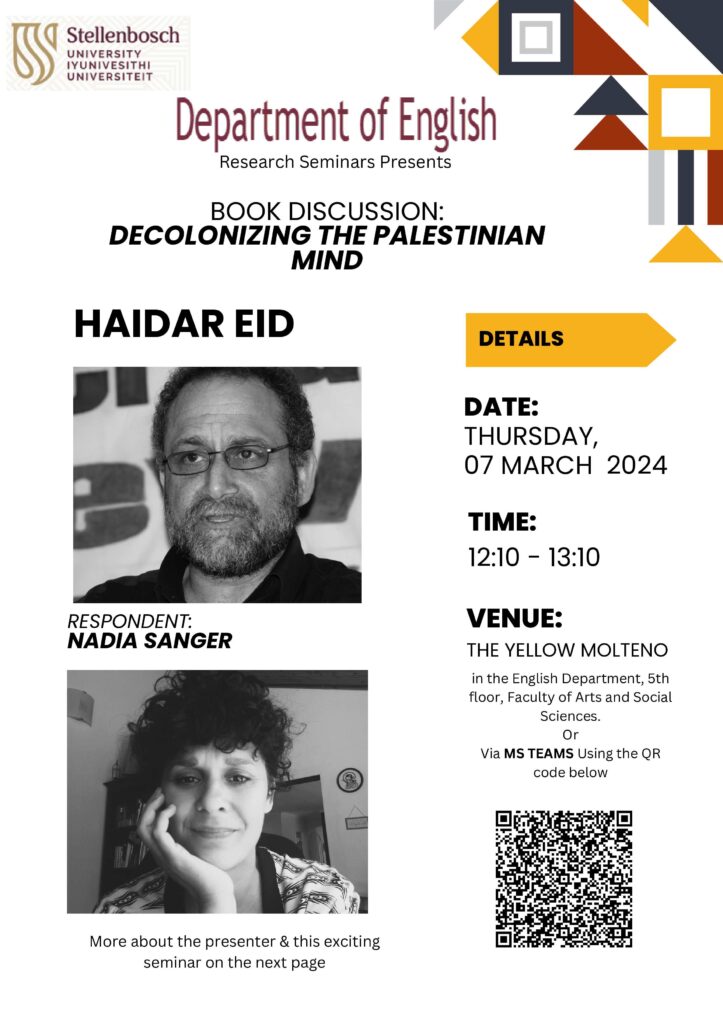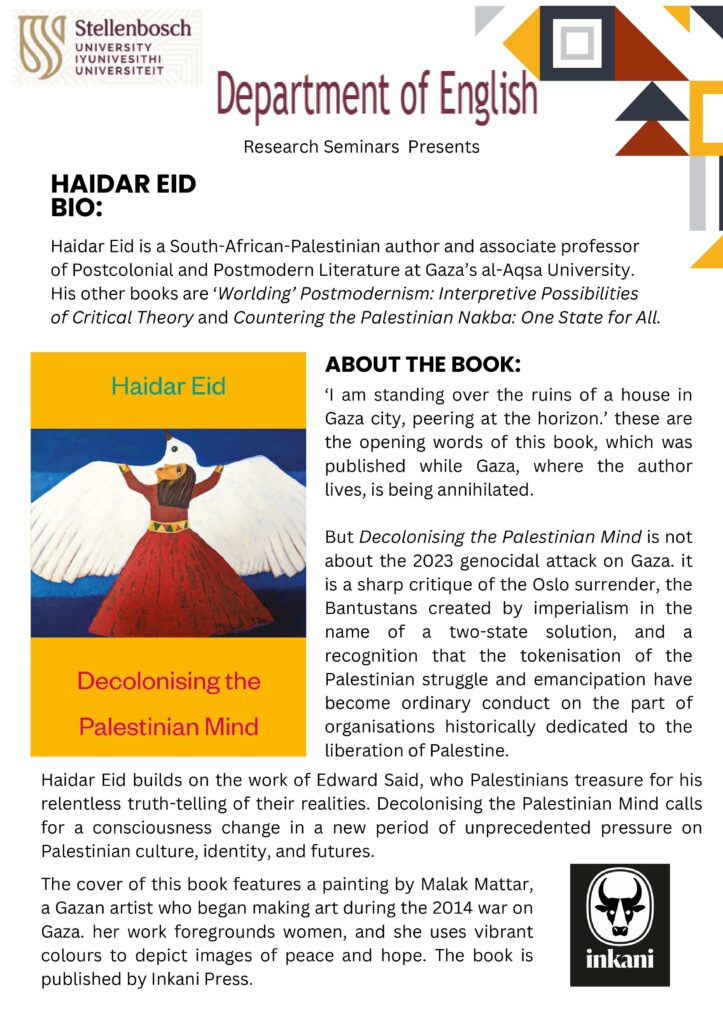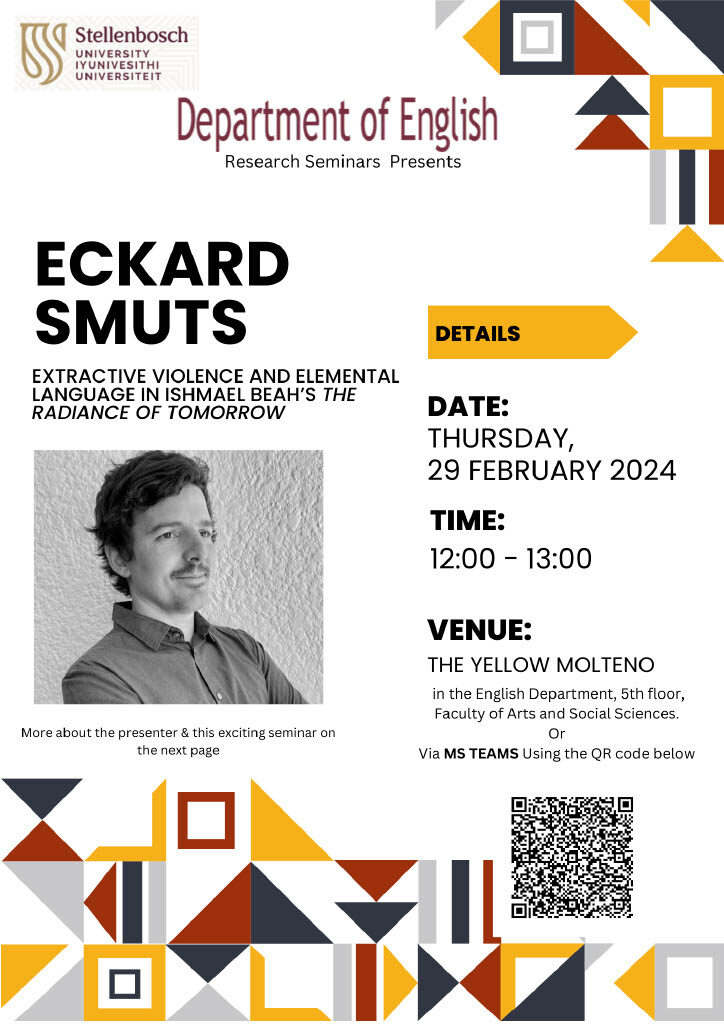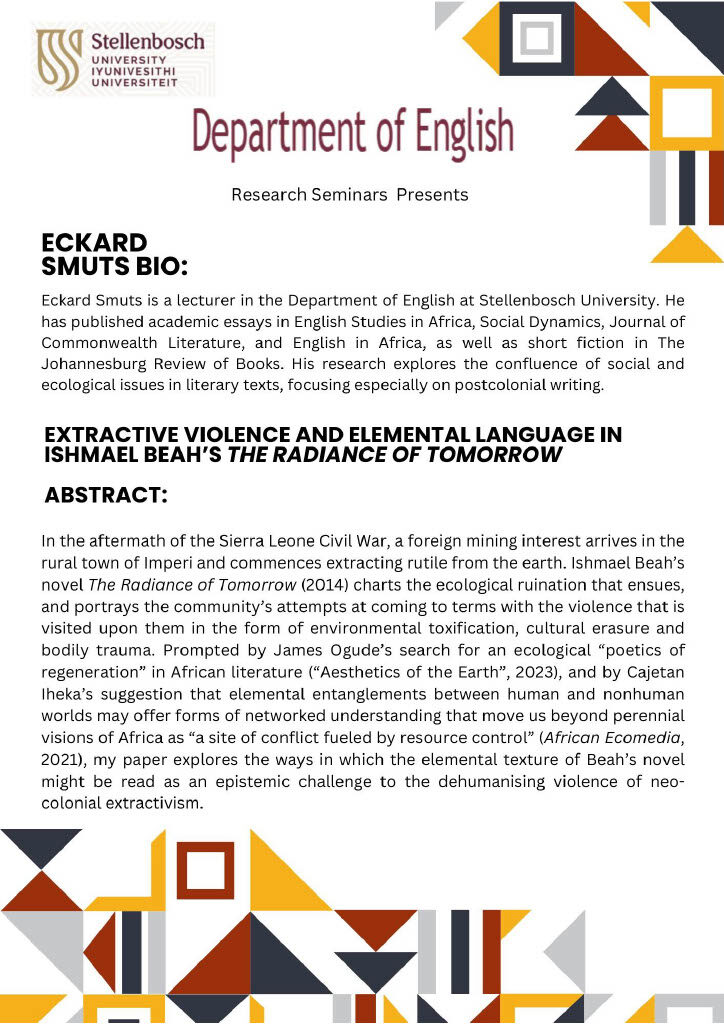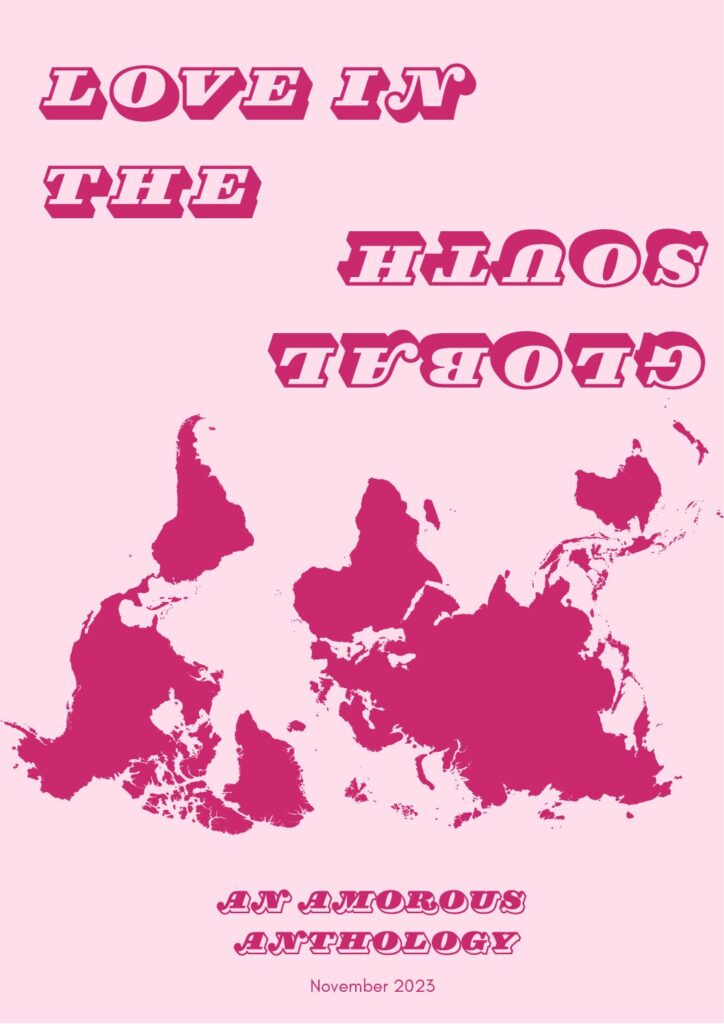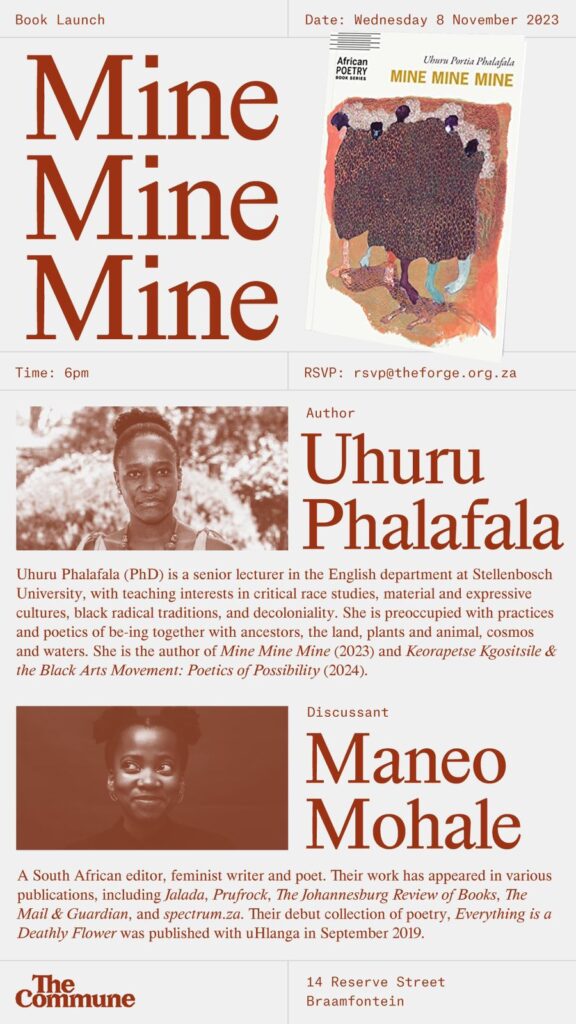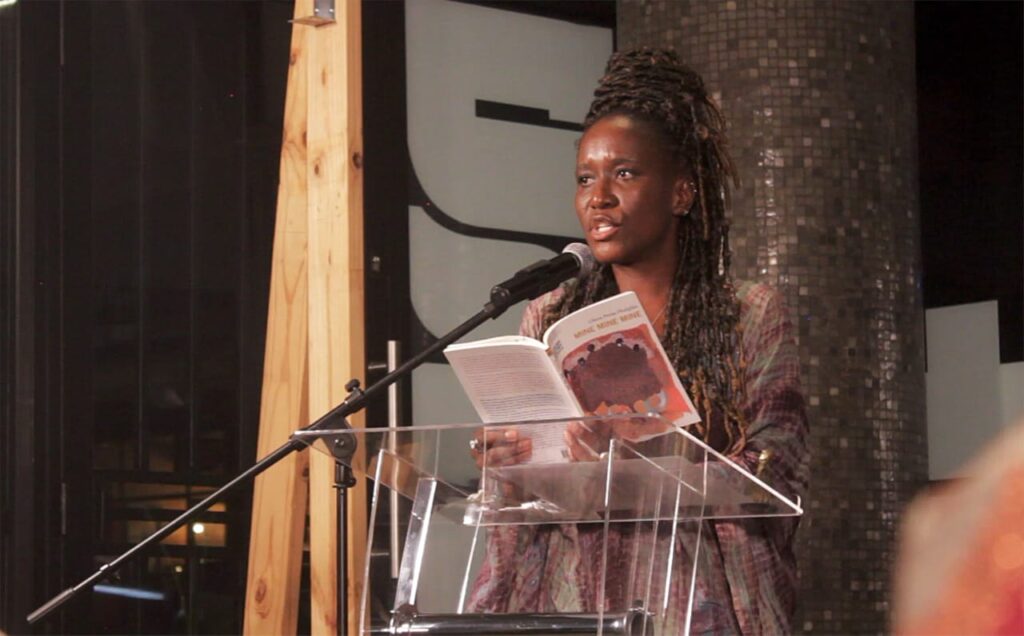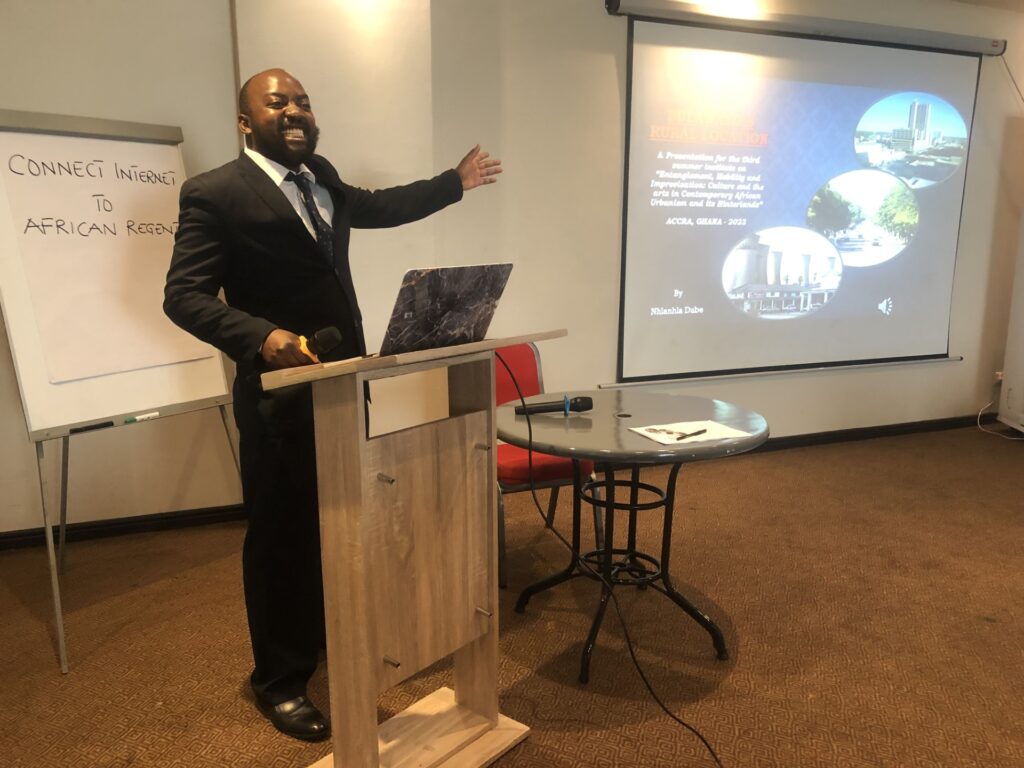On 15th May, multi-award award winning South African author, Damon Galgut visited the English Department to speak to undergraduate students, enrolled for a course on Galgut’s works, about his writing career. He was invited by course convenor, Ass. Prof Tilla Slabbert. The lively, though-provoking conversation was spearheaded by director, dramatist, and designer Marthinus Basson, a friend of Galgut for more than 40 years. For a generous two hours, Galgut talked and responded to questions about the genesis, inspiration, conceptualization, processes and challenges of his writing journey; a career which resulted in several nominations and awards, e.g.: The Good Doctor (2003), shortlisted for the 2003 Booker Prize for Fiction and winner of the 2003 Commonwealth Writers Prize (Africa Region, Best Book); In A Strange Room, shortlisted (2010), and Arctic Summer longlisted (2014) for the Booker Prize; and The Promise, winner of the Booker Prize for 2021. Postgraduate students and staff also attended, and the audience conceded, it was a truly inspiring, provocative literary event.
